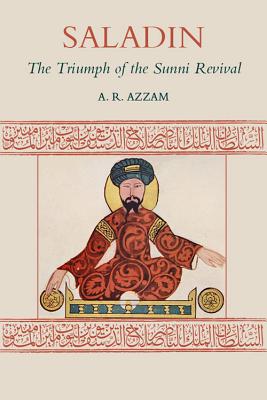
Over 800 years since his death, Saladin's fame as the Muslim liberator of Jerusalem, the great foe of Richard the Lionheart and the paragon of justice and nobility remains as powerful as it was during his lifetime.
In this new edition, the author A. R. Azzam traces the historical rise of the great Kurdish general and the dramatic events that led to his famous victory at the battle of Hattin. The author also examines how Saladin became a legend in his own lifetime and how and why the legend has continued to endure so powerfully to the present age. But in Saladin: The Triumph of Sunni Revival, the author goes beyond the myth and argues that the legend of Saladin's chivalry has neglected his inner spiritual life and beliefs and the vital role he played in upholding religious orthodoxy. Thus, Saladin: The Triumph of Sunni Revival is not just the study of the man but also the study of the historical age in which he lived and of the profound intellectual forces that influenced his thoughts and actions so deeply. It is a study of the power of an idea and how this idea, the Sunni Revival, began to take root and flourish in the century before Saladin was born and spread rapidly across the Muslim world--from Baghdad to Damascus, from Damascus to Cairo and ultimately and triumphantly, thanks to Saladin, from Cairo to Jerusalem.
This book starts in Baghdad with the disintegration of the Abbasid caliphate, and introduces great figures such as Nizam ul-Mulk and al-Ghazali. And although this may appear to have little relevance in a biography of Saladin, A. R. Azzam argues that Saladin was in reality a child of the Sunni Revival and that it was the ideals of this Revival which more than anything affected his beliefs and actions and constitute the foundations of the greatness of his political and spiritual vision.






